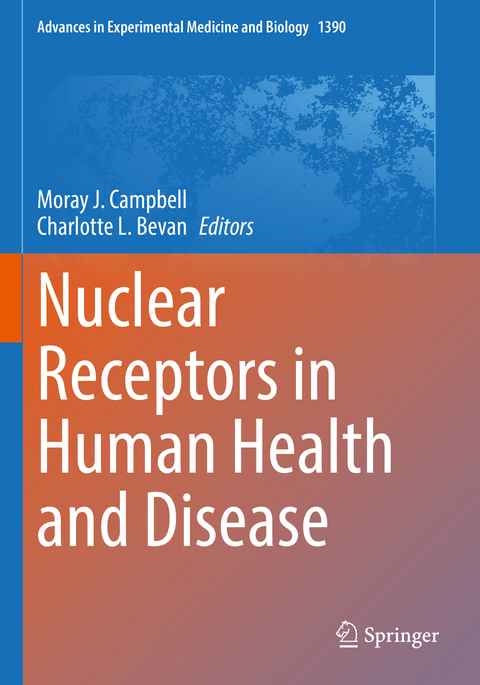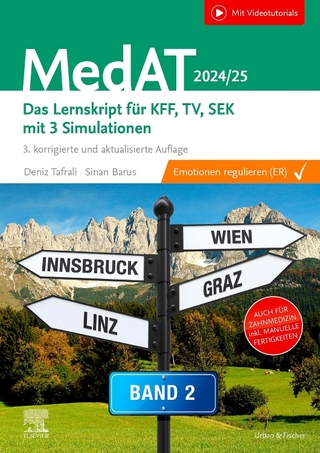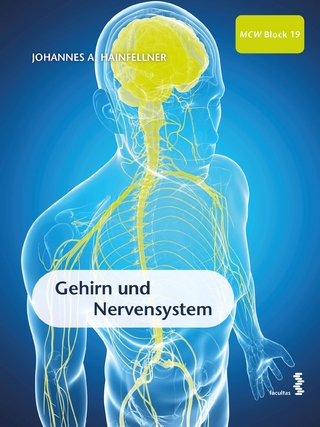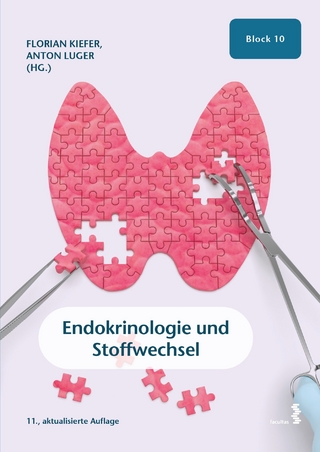
Nuclear Receptors in Human Health and Disease
Springer International Publishing (Verlag)
978-3-031-11838-8 (ISBN)
This book addresses and dissects the roles and crosstalk mechanisms for the 48 human nuclear receptors (NR) in human health and disease. After a State-of-the-Art introduction by an undisputed and celebrated field leader to provide an overview of the field and its significance, chapters are organized into six sections. The first three sections discuss NR roles in Reproduction & Development, Metabolism and Central Systems. These present to the reader our current understanding of NR signaling in the development and functioning of the reproductive system; the roles in the regulation of energy metabolism; and how NR signaling is more widely integrated into systemic functions from calcium flux to circadian rhythm. The subsequent three sections dissect how aberrant NR functions drive Cancer; how new insights into Genomic Interaction are helping to reveal how NR disruption drives disease; and finally, how Translational Efforts are exploiting this understanding from developing novel NR ligands to establishing how underlying genetic variation impacts NR function.
Within these sections the chapters also illustrate emerging understanding of how the epigenome and non-coding genome combine to regulate NR function and impact dysfunction. Increasingly these insights cross-fertilize over cell and disease boundaries and it is unsurprising that NR are being explored in novel and new arenas such as the context of neurological disorders and depression. Thus, there is wide scope for re-purposing of licensed drugs and development of new NR-targeting therapies for a host of conditions and diseases.
This unique book brings together many of the leading figures in NR research from across the globe, to discuss emerging roles and their implications for human health and disease. It summarizes the state of the art and shows signposts for future research to further shape this influential field.
lt;p>Dr. Campbell received his PhD at the University of Kent, UK (1994), and subsequently undertook post-doctoral studies at Cedars Sinai Medical Center/UCLA in Los Angeles, CA (1997) followed by further post-doctoral training at the University of Birmingham, UK, before transitioning to a faculty position at the same institution (1999). In 2007 he relocated to the US, to join Roswell Park Comprehensive Cancer Center in Buffalo, NY, and subsequently to the Ohio State University (OSU) in 2016. Dr. Campbell is a Professor in the College of Pharmacy at OSU, and a Member of the James Comprehensive Cancer Center. He serves on the Editorial Board of several journals including Endocrine-Related Cancer.
His research is centered on the roles of nuclear receptors in cancer biology, and specifically investigating how these actions are disrupted by genomic and epigenomic mechanisms. To date, he has published approximately 150 papers, reviews and book chapters. In 2010, he was co-editor on the Springer book Nuclear Receptors: Current Concepts and Future Challenges
Prof. Bevan gained her PhD (1996), at the University of Cambridge, UK studying androgen receptor function in Androgen Insensitivity Syndrome. She undertook postdoctoral research at the then ICRF Lincoln's Inn Fields laboratories, London (now the Francis Crick Institute) before joining Imperial College London in 1999. There, she is Professor of Cancer Biology, leading the Prostate Cancer research programme in the Department of Surgery & Cancer. In addition to, and enhancing, her research a major aspect of her role is the training and mentoring of young scientists at every level, and she has lead roles in PhD training, undergraduate bioscience teaching and equal opportunities.
The research focus of her team is to improve therapy prospects for men with advanced prostate cancer, often taking a convergent science approach. Specific interests include mechanisms of androgen signalling; roles of nuclear receptors and their cofactors in prostate cancer progression and therapy resistance; crosstalk between non-coding RNA and androgen receptor signalling; new therapeutic approaches for resistant disease. To date she has organised 3 international Nuclear Receptor meetings and published over 100 papers, reviews and book chapters.
Introduction (Moray J Campbell & Charlotte L Bevan).- Overview (Jason Carroll).- Part I: Reproduction and Development.- Chapter 1. Nuclear receptors in pregnancy and outcomes: clinical perspective (Luiza Borges Manna & Catherine Williamson).- Chapter 2. Female Reproductive Systems: hormone dependence and receptor expression (Philippa TK Saunders).- Chapter 3. Nuclear receptors in ovarian function (Darryl Russell & Doan Thao Dinh).- Part II: Metabolism.- Chapter 4. Nuclear receptors in energy metabolism (Alina Walth, Stephan Herzig & Maria Rohm).- Chapter 5. Nuclear Receptors and lipid sensing (James L Thorne and Giorgia Cioccoloni).- Part III: Central Systems.- Chapter 6. Corticosteroid receptors in Cardiac health and disease (Jessica Ivy, Gillian Gray, Megan Holmes, Martin Denvir, Karen Chapman).- Chapter 7. Physiological convergence and antagonism between GR and PPARGamma in inflammation and metabolism (Marija Dacic, Gayathri Shibu and Inez Rogatsky).- Chapter 8. Circadian Rhythm and Nuclear Receptors (David W Ray).- Chapter 9. Vitamin D and gut health (James C Fleet).- Part IV: Cancer.- Chapter 10. Estrogen Receptor alpha and ESR1 Mutations in Breast Cancer (Jaymin Patel & Rinath Jeselsohn).- Chapter 11. AR structural variants and prostate cancer (Laura Cato).- Chapter 12. ERbeta and inflammation (Linnea Hases, Amena Archer & Cecilia Williams).- Chapter 13. Genomic insights into non-steroidal nuclear receptors in prostate and breast cancer (Sajad A Wani & Moray Campbell).- Part V: New developments in transcriptional control by nuclear receptors.- Chapter 14. Protein condensation in the nuclear receptor family; implications for transcriptional output (Monique Appelman, Elle Hollaar, Jurian Schuijers & Saskia WC van Mil).- Chapter 15. Prostate cancer epigenetic plasticity and enhancer heterogeneity: molecular causes, consequences and clinical implications (Jeroen Kneppers, Andries M Bergman & Wilbert Zwart).- Chapter 16. Epigenetic coregulation of androgen receptor signaling (Rayzel Fernandes, Damien A. Leach & Charlotte Bevan).- Part VI: Clinical Translation.- Chapter 17. Cllnical Translation: Targeting the Estrogen Receptor (Jennifer O. Lauchle & Ciara Metcalfe).- Chapter 18. Drugging the undruggable: targeting the N-terminal domain of nuclear hormone receptors (Marianne Sadar).- Chapter 19. Genetic Variation and Mendelian Randomization approaches (Mojgan Yazdanpanah, Nahid Yazdanpanah & Despoina Manousaki).- Index.
| Erscheinungsdatum | 19.09.2023 |
|---|---|
| Reihe/Serie | Advances in Experimental Medicine and Biology |
| Zusatzinfo | XII, 346 p. 1 illus. |
| Verlagsort | Cham |
| Sprache | englisch |
| Maße | 178 x 254 mm |
| Gewicht | 834 g |
| Themenwelt | Medizin / Pharmazie ► Studium |
| Schlagworte | Cancer • Development • drug design • Epigenomics • genomics • Metabolism • Reproduction |
| ISBN-10 | 3-031-11838-3 / 3031118383 |
| ISBN-13 | 978-3-031-11838-8 / 9783031118388 |
| Zustand | Neuware |
| Haben Sie eine Frage zum Produkt? |
aus dem Bereich


